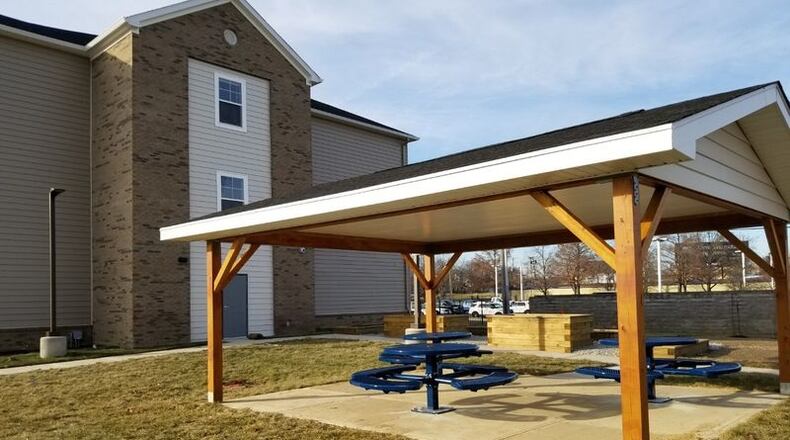Martin, who has been a resident of Audubon Crossing Apartments since April 2019, uses a power wheelchair for mobility and has limited use of her arms and legs. The lawsuit states that before moving into the apartment, and after, she requested a reasonable accommodation under the federal Fair Housing Act and the federal Rehabilitation Act to Defendants’ operations.
Martin’s issue was related to opening and closing the door to her unit.
“Latisha’s limited reach and dexterity required her to angle her wheelchair to allow her to unlock the door, lean to turn the handle without falling from her wheelchair and then push, and hold the door open with her wheelchair to enter her apartment at Audubon Crossing Apartments,” the release stated.
This has caused damage to Martin’s wheelchair and the lawsuit stated she was concerned about her safety with the potential of a tipping hazard and the additional time it took to enter her home.
“Cases like Latisha Martin’s demonstrate why the Miami Valley Fair Housing Center is a critical resource in our community. Without the Fair Housing Center’s assistance, Ms. Martin would likely still not have her requested accommodations/modifications,” Ronald Jackson, chair of the board of directors of the Miami Valley Fair Housing Center, stated in the release.
The lawsuit alleges that on March 1, 2019, before moving into the apartment, Martin submitted a request for a reasonable accommodation and/or modification for an automatic door. It was not until mid-July before Woda Cooper Companies responded, denying the request due to excessive cost. Requests were resubmitted in late July, August and September, which each were denied for “shifting reasons,” the release stated.
The lawsuit claims that each of Woda Cooper’s denials of Martin’s request “was untrue and unreasonable,” and that “Woda Cooper repeatedly failed to engage in a meaningful interactive dialogue to determine what Latisha truly needed, in an effort to find possible alternative solutions.”
The Dayton Human Relations Council conducted an investigation, and on Dec. 8, 2020, found probable cause that disability discrimination occurred against Martin.
Following the filing of administrative complaints with the council, and while the matter was pending, Woda Cooper agreed to purchase and install a door opener for Martin’s apartment. The opener as installed in July 2020, more than 16 months after her initial request, the release stated.
According to the suit, Woda Cooper received $750,000 from the Ohio Housing Trust Fund, $380,000 in Low Income Housing Tax Credits and participates in Ohio’s Section 811 Project Rental Assistance Program for people with disabilities.
About the Author

